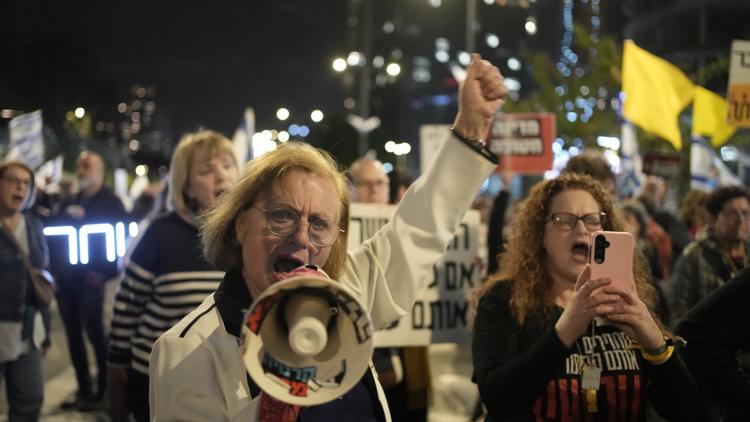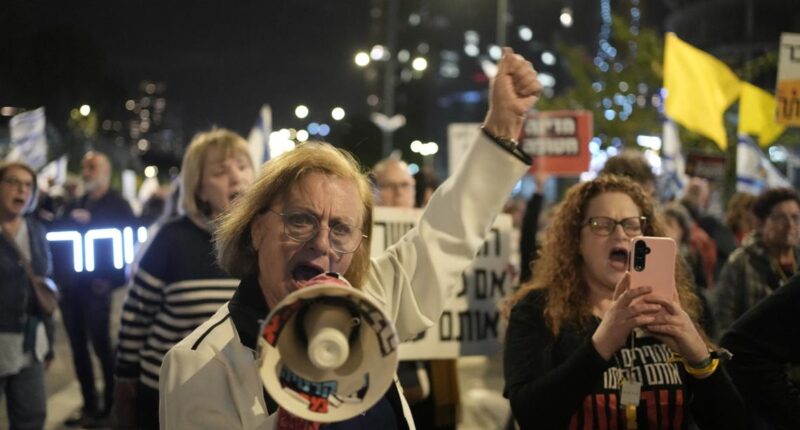
It was not immediately clear whether the proposal changed before the leader of Hamas in Gaza announced it had been accepted.
In Egypt, the Hamas militant group announced on Saturday that they have agreed to a new Gaza ceasefire proposal put forward by mediators Egypt and Qatar. However, Israel revealed that they have presented a counter-proposal in close cooperation with the third mediator, the United States.
Earlier in the week, Egypt had introduced a proposal to revive the strained ceasefire, following the unexpected escalation in fighting initiated by Israel. The details of any modifications to the proposal before its acceptance by Khalil al-Hayyah, the Hamas leader in Gaza, were not immediately available.
At the beginning of the week, an Egyptian official outlined the proposal to The Associated Press, explaining that Hamas would release five hostages, including an American-Israeli individual, from Gaza in exchange for Israel permitting aid into the region and a temporary halt in hostilities. Additionally, Israel would release numerous Palestinian prisoners. The official, speaking on the condition of anonymity due to not being authorized to disclose information about the confidential discussions, provided these details about the closed-door negotiations.
On Saturday, the office of Israeli Prime Minister Benjamin Netanyahu gave no details about Israel’s counter-proposal, which it said was offered after Netanyahu held consultations on Friday.
Israel a week and a half ago ended its ceasefire with Hamas by launching a surprise wave of strikes that killed hundreds of people. The White House blamed Hamas for the renewed fighting.
Israel has vowed to escalate the war until Hamas returns the 59 hostages it still holds — 24 of them believed to be alive. Israel also wants Hamas to give up power, disarm and send its leaders into exile. On Saturday, Israel widened its ground operations in Gaza’s southern city of Rafah near the border with Egypt.
Hamas has said it will only release the remaining captives in exchange for Palestinian prisoners, a lasting ceasefire and an Israeli withdrawal from Gaza.
Frustrated by the threat to remaining hostages in Gaza, families and others rallied again Saturday evening to call for a deal that would bring everyone home.
“The price of your war is the life of the hostages!” some protesters chanted in Tel Aviv. Minor scuffles broke out with police.
“War will not bring our hostages home, it will kill them,” Naama Weinberg, cousin of deceased hostage Itay Svirsky, told a weekly gathering of families in Tel Aviv.
The war in Gaza was triggered by Hamas’ Oct. 7, 2023, attack into Israel, in which Palestinian militants killed some 1,200 people, mostly civilians, and abducted 251.
Israel’s retaliatory offensive has killed over 50,000 people, according to Gaza’s Health Ministry, which does not say how many were civilians or combatants. Israel’s bombardment and ground operations have caused vast destruction and at their height displaced some 90% of Gaza’s population of over 2 million people.
Early this month, Israel again cut off all supplies to Gaza to pressure Hamas to accept new terms to the ceasefire that started in mid-January.
Israel had balked at entering negotiations over the truce’s second phase, which were meant to begin in early February. Under the agreement, phase two was meant to bring the release of the remaining 24 living hostages, an end to the war and full Israeli withdrawal from Gaza.
Frankel reported from Jerusalem.
Follow AP’s war coverage at
















